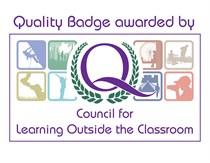Welcome
Welcome to the SafetyWorks! website.
At SafetyWorks! young people and community groups can experience a range of interactive safety scenarios in impressive, true-to-life settings, helping them learn how to prevent danger and live safely.
Latest News
Tweets by safetyworksukWhat you can learn at SafetyWorks!
 How to find us
How to find us
SafetyWorks!
West 15
Whickham View
Newcastle Upon Tyne
NE15 6UN












